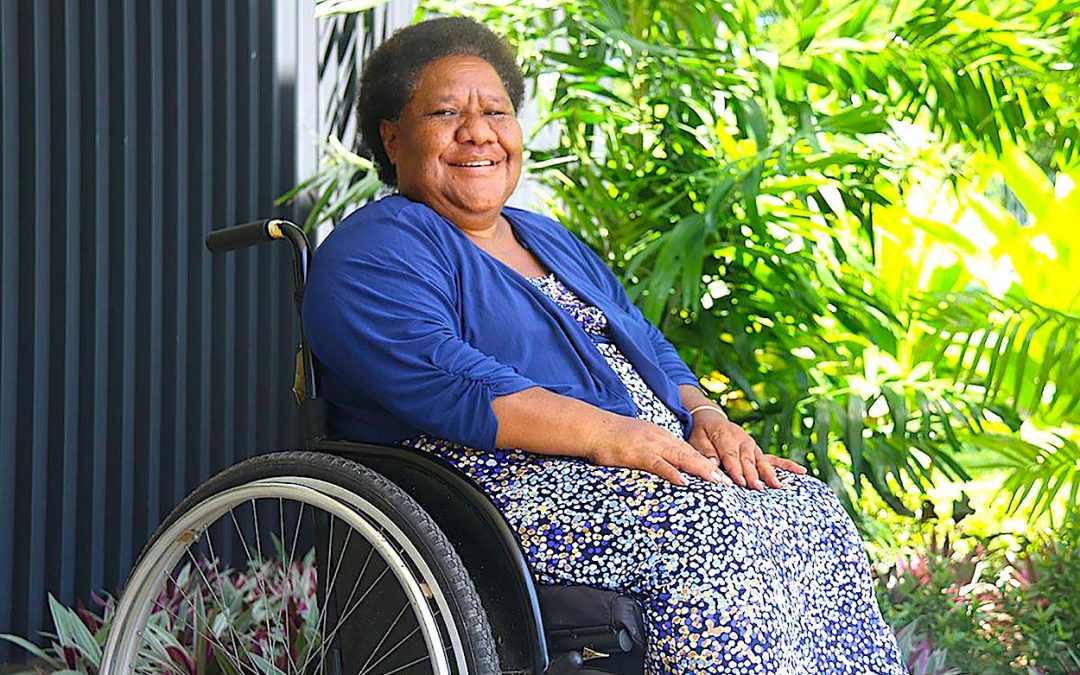When she took to the podium at a United Nations summit in Morocco a few years ago, Ipul Powaseu had every reason to feel proud of how far she had come.
From her childhood in a small village in Manus, Ipul was now addressing delegates from around the world about disability inclusion in Papua New Guinea and the Pacific.
That journey, from a remote island community to the international stage, might have seemed too big a dream for most people. But Ipul Powaseu is not most people.
After contracting polio as an infant, Ipul overcame physical and social barriers to complete her primary and secondary education, going on to attain Bachelor’s and Master’s degrees, the latter with a scholarship through the PNG-Australia Partnership. Ipul established herself as a respected agricultural scientist in PNG.
While continuing her career, she held a number of disability leadership and advocacy roles, including appearances at international conferences like the one in Morocco in 2016.
It was in one of those leadership roles – as inaugural president of PNG’s peak disability inclusion body, the Papua New Guinea Assembly of Disabled Persons – that Ipul realised she could go even further.
“I decided that as an advocate, I needed to seek further technical understanding about disability issues,” she explains.
‘I wanted to critically analyse the social policies in Papua New Guinea and see where and what the barriers were and how we as people with disabilities can contribute to making the change we’re advocating for. That’s what prompted me to put in my application for a PhD.”
Today, Ipul is putting the finishing touches on a doctorate on disability inclusion policy in PNG, which she has undertaken as an Australia Awards scholar at Deakin University, Melbourne.
True to form, Ipul went beyond her formal studies as a PhD student in Australia, participating in a UN forum on gender and women and giving guest lectures on disability inclusive development.
“That has given me a better understanding of how you can mainstream disability across policy areas,” Ipul reflects.
She also made the most of Deakin University’s disability resources.
“The University has a disability policy, they also have a Disability Resource Centre which provides assistance for people with disability – in all areas of disability,” Ipul says.
With PhD completion on the horizon, Ipul says her next goal is to use what she has learned to support a stronger voice for people living with disabilities in PNG. She would also like to see disability inclusion made a priority during PNG’s 2021 national census.
“I’m hoping that my studies will bring to light some of the challenges that we face but also how we as people with disability and the various sectors involved in disability can work together,” she says.
Ipul also hopes she can inspire other Papua New Guineans with disability to follow her lead and aim high with an Australia Award.
“Going on scholarship provides a broader understanding of development and gives insight on what you plan to do,” Ipul says.“Coming back into the country and applying [your learnings] is a challenge – but I still want to encourage people to apply for Australia Awards.”
With applications for Australia Awards Scholarships Intake 2022 planned to open in early 2021, persons with disability are strongly encouraged to apply.
